
Freeman Face Mask Gold Box | Amazon
from The Root https://ift.tt/2PztbNs
via

A refurb Ring Video Doorbell 2, discounted Breda watches, and a discounted Dyson V7 Animal lead off Saturday’s best deals from around the web.
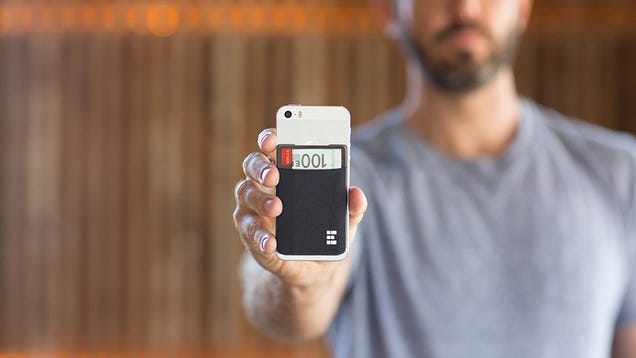
Zero Grid Card Holder | $8 | Amazon | Clip the $1 coupon and use promo code ZHJM3QHT

Last Saturday, Quanita “Tay” Jackson was organizing a youth basketball tournament in Moody Park, Milwaukee. The purpose of the event was to promote peace; though only 20-years-old, Jackson had already made a name for herself as an anti-violence activist and organizer.
Others not on the 2019 list: Capital City Bank & Trust Co. of Atlanta, Independence Federal Savings Bank of Washington. D.C., South Carolina Community Bank of Columbia, South Carolina, First Tuskegee Bank of Tuskegee, Alabama, and Advance Bank of Baltimore.
The declining number of black banks was a motivation for the Let Us Put Our Money Together: The Founding of America’s First Black Bank, written by Timothy Todd, an executive writer with the Federal Reserve Bank of Kansas City.
Todd says developments in the area of black banks have been particularly disconcerting with the number of institutions declining by more than half since 2001.”When you add to this the number of households that are unbanked or underbanked, it really puts a spotlight on questions about the ability of individuals and families to borrow money on fair and appropriate terms for things like financing an education, establishing a business, or buying a home,” he said via email.
The promising news is actions are underway to aid black banks. U.S. Rep. Bobby Rush, D-Illinois, has introduced the Rescue Act for Black and Community Banks. The bill—initiated in January 2019—aims to bring regulatory relief for black banks from Congress, boost wealth-building for black consumers and businesses, and help save black banks from failing.
One group, Bank Black USA, launched a movement requesting that Americans deposit $500 million into black-owned banks by Martin Luther King Jr. Day 2018. Some $50 million was deposited into blank banks in a six-month period, according to the FDIC.
Support might very well be necessary as the business landscape is rugged for black-owned banks. Here’s a stunning statistic: Seven of the 10 largest black-owned banks on the 2019 BE Banks list had lower assets for 2018 than for 2017.
Still, observers say, black banks are still essential as they can serve as an alternative to high-priced options such as payday lenders and check-cashing stores blacks often rely on. And blacks are still more likely to be denied a home loan or small business loan from mainstream banks than whites.
Cunningham says Congress enacted the Financial Institutions Reform, Recovery, and Enforcement Act of 1989 (FIRREA) under Section 308. Among its goals, the law called for preserving the number of minority depository institutions and offering technical help to prevent insolvency of institutions. He said the law also was geared to promote and encourage the creation of new minority depository institutions. “An objective review of recent performance based on 308’s standards would lead to the conclusion that the Fed has failed to preserve the number of black-owned depository institutions.”

OneUnited Bank’s Lady Liberty Visa Debit Card (Image: OneUnited)
Furthermore, Cunningham contends black-owned banks today are too small and weak to make a measurable difference in the black community. He claims Boston-based OneUnited Bank, No. 1 on the BE Banks list with assets of around $656 million, is much smaller than banks serving other racial groups. He pointed to Asian-owned East-West Bank based in Pasadena, California, with assets of nearly $40 billion as an example. And, of course, America’s largest bank, New York-based JPMorgan Chase, which caters to multiple races, has assets exceeding $2.7 trillion.
So who should be leading the charge to help these banks survive? Perhaps the Fed or other sources? Todd says despite efforts on multiple fronts, this is an area where meaningful progress has been hard to come by, although there have been some successes.
“I think the stories of many of the earliest bankers are inspirational and I hope others will find them to be as well,” he says. “I hope that this advances the discussion about the important role that banks play in serving their communities, which is perhaps different than how many might think about banking.”
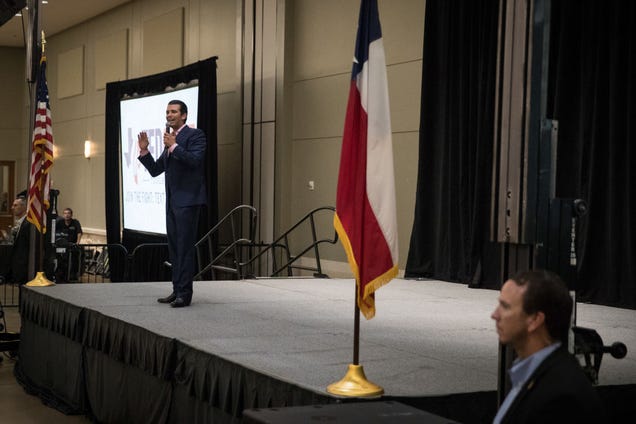
Donald Trump Jr. headlined a rally in Kentucky and he could’ve given the exact same speech in his bathroom and it would’ve been better attended. The rally on Thursday afternoon for Kentucky Gov. Matt Bevin was so bad that people wondered if it was co-sponsored by Ja Rule.

When it comes to saving money over the holiday weekend, sit back, relax, and let us do the work for you. We’ve rounded up the best Labor Day deals across the web, so you barely need to lift a finger (well, you may need to lift one finger) in order to shop some great deals. Scroll down to start getting in on the…
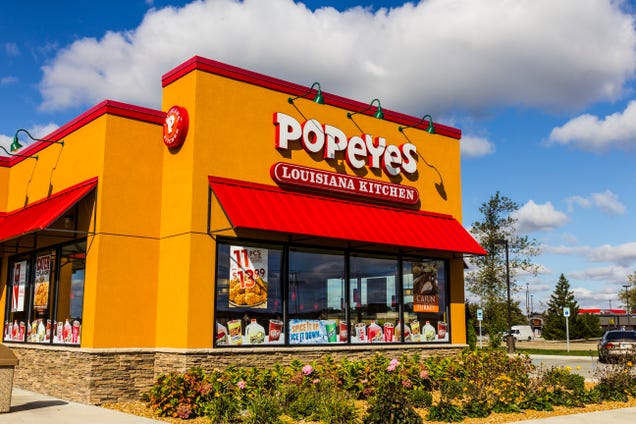
Craig Barr of Chattanooga, Tenn., is suing Popeyes for false advertising, deceptive business practices, and wasting “countless time” in his pursuit of their very good chicken sandwich, which was put on hiatus after hordes of fried-chicken-enthusiasts caused the franchise to sell out of the beloved sandwich.

If you’re a Jackie Aina fan, you already know too much is never enough; which is why we’re thrilled to see the heavily followed YouTuber bringing her candid brand of beauty expertise to Facebook. The beauty vlogger is the star of Allure’s first original Facebook series, Beauty Detective, debuting today.

A Sunday Scaries sale, Laptop Gold Box, and Clear the Rack lead off Friday’s best deals from around the web.
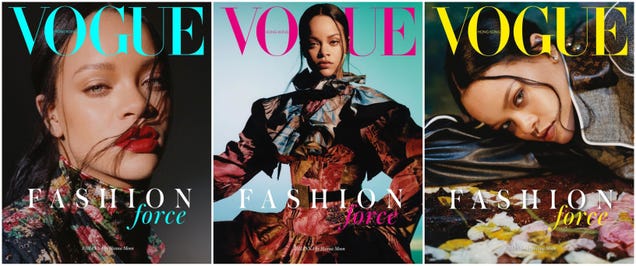
Rihanna may not always be there when you call for new music, but she’s always on time with a lewk. Just when we thought we’d have to survive this September without a cover from our beloved bad gal, Vogue Hong Kong debuted their trio of September covers—because one picture of Rihanna is never enough—and our fall got…

$20 Off Comforters For New Customers | Buffy | Promo code LABORDAY20
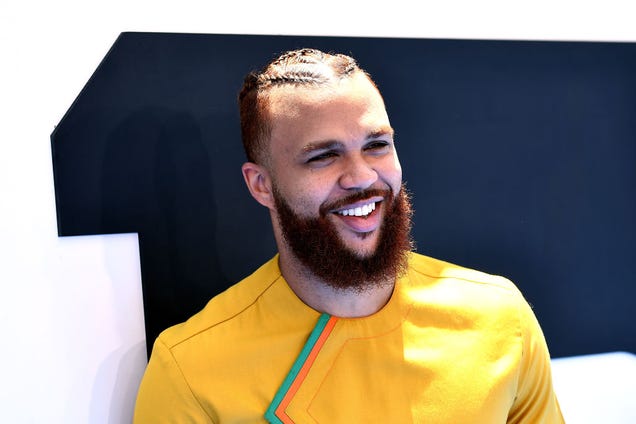
While August 23, 2019, probably won’t be revered in modern black music release history the same way that September 29, 1998, is—the day that Outkast’s Aquemini, Jay-Z’s Vol. 2, Hard Knock Life, A Tribe Called Quest’s The Love Movement, Black Star’s Mos Def and Talib Kweli Are Black Star and Brand Nubian’s Foundation…
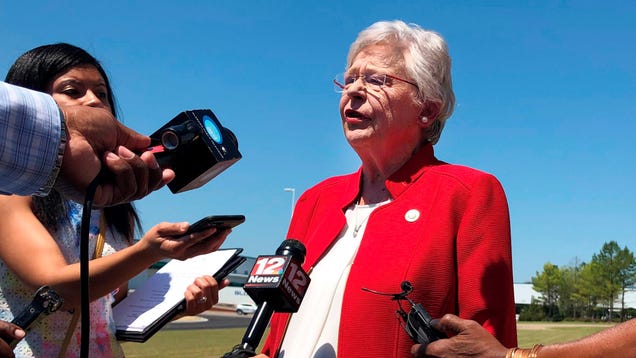
Months after saying she didn’t know nothing about her sorority’s college yearbook page showing women in blackface, Alabama Gov. Kay Ivey on Thursday issued an apology about having worn blackface herself in a separate incident as an undergraduate at Auburn University.

We see a lot of deals around the web over on Kinja Deals, but these were our ten favorites today.
A sea of black men—and the women who love them—touched down at the JW Turnberry Miami Resort and Spa on Wednesday in high anticipation for Black Men XCEL, an annual four-day gathering that recognizes and empowers men of color. Each year, the summit, which is sponsored by FedEx, enriches black men with thought-provoking workshops, star-powered panels, and professional development sessions, along with a variety of social and leisure activities.
After checking in, attendees arrived at registration where they received badges and swag bags filled with goodies. Later that evening, they mixed and mingled at a warm welcome reception in their finest red-carpet attire. Their enthusiasm continued at the third annual Black Men XCEL Awards, which pay tribute to innovators, trailblazers, and game-changers who have risen to astonishing heights in their respective fields, sponsored by AT&T. This year’s honorees include civil rights icon Rev. Jesse Jackson, legendary soul singer Eddie Levert, National Urban League President Marc Morial, and NFL Hall of Famer and groundbreaking entrepreneur Jerome Bettis.

Ed Gordon at the 2019 Black Men XCEL
Emmy Award-winning broadcaster Ed Gordon opened the ceremony reflecting on the impact of The New York Times’ 1619 Project, which takes a deep dive into the history and legacy of American slavery.
“In 1619—four hundred years ago this month—20 Africans landed in Port Comfort, Virginia, brought here in chains and traded for food,” said Gordon, the master of ceremonies. “That moment would begin the journey of a people, our people, in America across four centuries marked by close to 250 years of slavery and followed by decades of legal segregation [and] discrimination,” he said. “Our journey, however, is not about being victims. It is about perseverance, self-determination, triumph, pride, succeeding against insurmountable odds.”

Marc Morial, president, National Urban League
BLACK ENTERPRISE President and CEO Earl “Butch” Graves Jr. also gave opening remarks, paying homage to the legacy of BLACK ENTERPRISE as the premier publication spotlighting professional black men in business.
“For nearly five decades, Black Enterprise has been the only media outlet that has intentionally, consistently, and unapologetically shared with the world in our magazine and on our website and social media platforms the contributions of black men as corporate executives, Wall Street financiers, doctors, attorneys, engineers, and, of course, entrepreneurs.” Graves also described Black Men XCEL as a franchise that serves to further the legacy of his father, Earl Graves Sr., who launched the print magazine in 1970.
Shortly thereafter, Corey Anthony, senior vice president, Human Resources and chief diversity officer at AT&T, delighted the audience with a story of how Levert, the lead singer of The O’Jays, impacted his life and, ultimately, helped his marriage.
Tony Waller, senior director, Corporate Affairs Constituent Relations for Walmart, then presented the first award of the night. While accepting his award, Morial expressed the urge to “bust the myth” of black men fostered by stereotypes and negative imagery.

Jerome “The Bus” Bettis, NFL Hall of Famer and entrepreneur
After Bettis and Levert received their respective honors, activist Jonathan Jackson accepted the award on behalf of his father, Rev. Jackson, sharing powerful words of inspiration.
The celebration of black men will continue until Sunday with golf tournaments, luxurious spa experiences, a Mars vs. Venus trivia competition, and live comedy, and concert performances. You can follow along on Twitter and Instagram with the hashtag #BMXCEL.

You know, I saw this whole thing going differently in my mind. I had visions of puttering around my kitchen every weekend, spatula in hand, hair wrapped and apron around my waist, whipping up savory vegan dishes the way I have many a Sunday roast chicken dinner or Thanksgiving feast, and turning out plates and bowls…
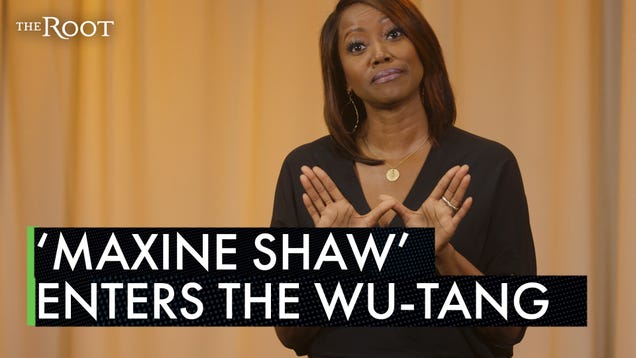
Erika Alexander will forever be a staple in black television and is still on top of her game. You may know her best as Maxine Shaw from Living Single or Cousin Pam from The Cosby Show but now she’s starring as a young RZA’s mother in Hulu’s Wu-Tang: An American Saga.

An Emirates flight sale, discounted Baggu bags, PC Gold Box, and a Dr. Bronner’s Sampler lead off Thursday’s best deals from around the web.

The Facebook post read, “MISSING: Téa B. Choates, Last seen Tuesday 8/6 in Lithonia Ga area.” The social media plea came from Choates’s mother, Ebony King. The 19-year-old was last seen by her fiance, Aldeyshaun Locklear. Seven days later, Choates’s body was recovered from a wooded area on the outskirts of Atlanta, …
Brandon Laster is a successful franchise owner now, but to get there he’s had to overcome obstacles most people will never experience.
Laster grew up in Chicago and had a father that most would consider a role model when it comes to entrepreneurship. Benjamin Laster had owned a Checkers Hamburger franchise since the early 1990s, as well as a Popeye’s Chicken and a McDonald’s. Brandon was no stranger to business ownership, however. While his father’s Popeye’s Chicken location was in Chicago, his office of operations was headquartered in Washington, DC. This meant that while Laster knew his father was a successful fast food franchise owner, he wasn’t exposed to the day-to-day operations of the businesses. Laster is the first to admit that as a young man, he had a bit of a “know it all” attitude and while he was given the opportunity to work in his father’s Popeye’s, he felt he should be running the place—overnight. His father did not agree.
With that, Laster decided to strike out on his own and go into club promotions. He failed miserably. He paid out more money than he had, with more cancellations than bookings. He spent much of his time looking for ways to get rich quick. Those short cuts and bad decisions eventually led him to an eight-year sentence in Leavenworth Federal Prison. While there, Laster had a lot of time to think and plan. When he realized he had about a year and a half left on his sentence, it was time to get serious about life after prison.

Brandon Laster, Franchise Owner, Enviro-Master Services
His father had sold the Popeye’s location in Chicago, and Laster had no intentions of moving to D.C. to work in the Checkers store. That’s when Laster came up with idea to write letters to some of the top CEOs in the country. “I felt it was a waste of time to go the normal route and write to human resources or hiring managers. Those resources had no reason to take a chance on me,” he shares. “I also knew that if the person at the top was willing to take a chance on me, they probably would be willing to mentor me to help ensure my success and protect their reputation.” Despite the negativity he received from both prison staff and fellow inmates, Laster knew he had nothing to lose.
As a result, Laster received job offers from over 15 major companies, including Nike, Starbucks, Walgreens, U.S. Foods, and Granger. But it was an offer from Pat Swisher, a lifelong entrepreneur who started Swisher Hygiene in 1983 and was a pioneer in franchised hygiene services for commercial restrooms, that Laster could not turn down. Laster chose to contact Swisher because they had something in common—being a convicted felon. In 2002, Swisher served 18 months for tax evasion related to his personal finances, after he had shepherded Swisher Hygiene into operations in 23 countries, serving more than 100,000 clients and with annual revenue of $22 million from his 140 units.
“Pat didn’t just offer me a job, he offered me a career,” Laster says. “Having been where I was, he knew I was more than my ‘record.’ He told me that as long as I was willing to work hard, he welcomed me to his team.”
Upon his release in May 2018, Laster became a Territory Sales Representative in Chicago, working for Ruben Reyes, franchise owner of Enviro-Master Services, which Swisher founded in 2009. Like Swisher Hygiene, Enviro-Master specializes in franchised hygiene services for commercial restrooms.
“I couldn’t let Pat down, so my only goal was to kill it in sales,” Laster says. “I didn’t even realize the impact I was making on the business, until they told me I had brought in $300,000 in sales in my first year.” After that first year, Reyes approached Laster about becoming his partner. Brandon didn’t have the resources to make that happen, so he turned to his father. After seeing his son’s outstanding performance and the impressive revenues, he was ready to invest.
Reyes, Laster, and his father are now partners in the business. They have contracted with 131 new customers since Laster started with the business—resulting in $1.9 million in sales. In the next two to three years, their goal is to do $5 million in sales. “We believe the market is still hugely untapped,” Laster says. “We have 615 customers in Chicago, which may seem like a lot, but hundreds more [are] possible.”
But Laster isn’t just about making money as a franchise owner. Because of his prison experience and the opportunity Swisher provided for him, Laster is compelled to pay it forward. “When I’m out signing on new customers, I take the opportunity to speak with owners about hiring guys like me. As a result, I’ve been able to get jobs for four men getting out of prison.”
So, what advice does Laster have for aspiring entrepreneurs that are allowing fear to stop them from achieving their goals? “You are your biggest asset, but you have to believe that. You almost have to make yourself ‘rejection proof,’ meaning, don’t let the no’s discourage you. No’s are a part of life. If you can’t get past the no’s you should question if this is the right decision in the first place.”

Go take a look at your international travel bucket list, because there’s a pretty good chance one of those destinations is included in Emirates’ big International Sale.
In the sea of 2020 Democratic presidential candidates fighting to differentiate themselves, several candidates have zeroed in on policies addressing the racial wealth gap as key campaign promises. Proposed solutions run the gamut, with candidates touting baby bonds, backing direct reparations for African descendants of slaves, and indirect assistance to small business owners of color.
One long-shot tech entrepreneur has even promised a $1,000 “freedom dividend” to every American, often citing Martin Luther King Jr. on the stump as his source of policy inspiration. Voters are paying attention: More people Googled the phrase “racial wealth gap” in the previous 12 months than in any year prior. And many of those casually researching the racial wealth gap for the first time would likely find mounting evidence of a crisis that requires our immediate attention.
The wealth gap is everywhere. Activists, academics, journalists, and well-meaning pundits have raised the issue through both polite conversation and silent protest. But like the familiar wail of a car alarm in a city center, it is mostly ignored by those with the ability to drive legislative action. The most recent piece of legislation to even acknowledge the wealth gap was the Community Reinvestment Act of 1977. And, of course, like any tragedy or injustice that consistently assaults our consciousness, we risk becoming numb to the horror these numbers represent.
But a significant part of the problem is how we frame the issue itself, as the phrase “wealth gap” doesn’t inspire action. A gap is an empty space. A break between two things. The absence of a thing. It is simultaneously nothing and something. We don’t fear gaps. We mind gaps. And this is the difficulty in speaking about the wealth gap.
Most importantly, the phrase “wealth gap” does not inspire shame. It does not communicate what Martin Luther King described as “the fierce urgency of now.” It does not capture the violence that poverty inflicts on those molested by its seemingly unending grope. And we can’t wait 228 years to undo the entrenched systematic oppression of people of color so ensconced in the American Dream. So, let’s call it what it is—the Pustulant Cavity of Economic Apartheid.
Now if reading or saying that fills you with disgust; that is the point. This framing effect is meant to jolt enablers or silent witnesses to economic oppression into action.
Despite what some in the public eye would have you believe, we know that we have not “solved” racism, and white supremacy is not a hoax. We know that white families hold 10 times the amount of wealth as black families, with $171,000 and $17,000 holding steady as the most cited and reliable figures for white and black family wealth respectively. We know that the accumulated wealth of the average black American descendant of a slave has not yet reached the average cost of a slave at the time the emancipation proclamation was signed.
More than 150 years later, we are still working to buy our freedom.
But for many, this will be new knowledge. A 2017 study published in the Proceedings of the National Academy of Sciences found that most white Americans severely underestimated the country’s level of racial inequality, pegging black wealth at 80% of white wealth when it’s closer to a paltry 7%.
The gap in both wealth and income between black and white Americans has daunting durability. In 1994, median black household income (by far the most significant contributor to the wealth gap) lagged white household income by about $26,000. At that time, the phrase “racial wealth gap” was not a part of public discourse around economic inequality between the races. My own quick desktop analysis of 2,636 articles from Dow Jones international news database, Factiva, found no published usage of the phrase “racial wealth gap” in any major publications that year.
By 2014, the median household income gap between blacks and whites had grown to roughly $28,000, with this growth occurring alongside a massive increase in print and digital media attention to the racial wealth gap, as so named.
Skilled communications practitioners understand the importance of being able to re-frame issues. To adequately communicate the damage man is inflicting on our environment, we have moved from discussions of “global warming” to “global heating,” and from “climate change” to the “climate emergency.” Republican operatives famously adopted the phrase “death tax” when describing taxes on inheritances. Unsurprisingly, focus group data showed more public opposition to a “death tax” than technically correct “estate taxes.” No issue screams more for this treatment more than the Pustulant Cavity of Economic Apartheid.
Like the climate emergency, a person’s inability to achieve financial security is not a passive thing. Economic disparities manifest themselves in poorer mental and physical health outcomes and typically reduce the life expectancy of those on the lower end of the economic spectrum. A 2016 study out of MIT showed the wealthiest 1% of men in the United States live an average of 14.6 years longer than the poorest 1% of men. With 36% of U.S. citizens living in poverty being either black or Hispanic, the still Pustulant Cavity of Economic Apartheid is killing us.
Much in the way The Guardian changed and communicated the new language it was using around the climate crisis, more editorial boards should adapt their editorial and style guides to suit the gravity of the racial wealth gap crisis.
Words matter. The fourth estate must embrace their role in determining the nomenclature that so often impacts policy. And if my chosen label strikes you as a little too on the nose, feel free to replace it with one of your own. As long as your choice reflects the true nature of the fight ahead. This fight requires each of us to stand up and correct names diluted by niceties when so many lives are at stake.
This is more than a gap. Call it by its name.
![]() The ideas and opinions expressed in this article are solely those of the author’s and not necessarily the opinion of Black Enterprise.
The ideas and opinions expressed in this article are solely those of the author’s and not necessarily the opinion of Black Enterprise.
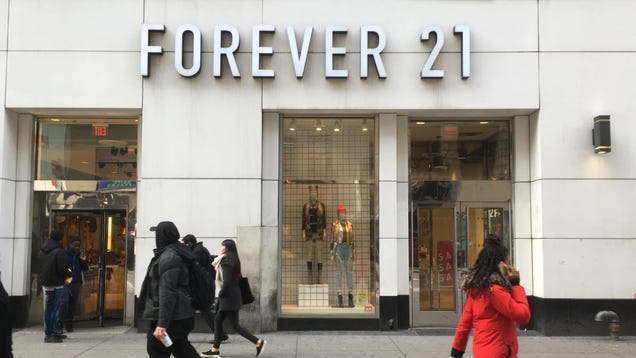
I have a justifiable dread about the state of retail stores in America, perhaps spurred on by the abandoned mall of my youth, a one-time mecca of teenage frisson overgrown with weeds and decay before finally being demolished. One of the inevitable caveats of Al Gore’s internet has been the demise of the…
In the rich tapestry of history, the threads of Black LGBTQ+ narratives have often been overlooked. This journey into their stories is an ...